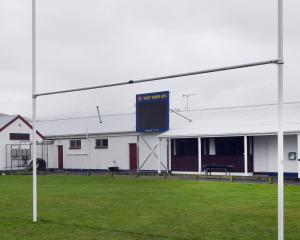
What drew you to the hospice CEO job?
It was an opportunity out of the blue. I was service manager for oncology and haematology at the Otago District Health Board when the position came up and I thought it looked like the perfect job.
It was and is. I loved the diversity it offered. It's all about people and everything that goes with that.
Has your work with the hospice been what you expected?
Coming from a hospital setting, I probably had pre-conceived ideas about what the hospice was. There are so many misconceptions of what it is all about. Many people think the hospice is a building where sick and old people come to die.
But hospice is so much more. It's a philosophy of holistic care, looking after patients and their families and not just in a hospice inpatient unit.
Most people want to be in their own homes and that is where most are cared for.
How aware do you think the community is of the hospice and its services?
During 10 years I've been here, I've noticed a significant increase in the demand for palliative care. That tells me the message is getting out. Perceptions have changed and the reputation of hospice care has increased as more people have access.
The bulk of the work done by the hospice is now in the community, not just in Dunedin, but right around the region, supporting patients in their homes and in elder care facilities.
I think there is a real appreciation of the difference good hospice care can make for people and their families facing a terminal illness.
The number of patients cared for has more than doubled since 2007 when we were caring for about 80 patients at any given time. At present, the hospice is supporting 210 patients, their families and whanau.
Staff numbers have increased from 50 to 100 and 80% of those 100 are directly involved in patient care. And 81% of those staff have postgraduate qualifications in palliative care.
During your 10 years with the hospice, have you seen changes in the public perception of what the hospice actually is?
In my first week on the job here, one of the staff who has been with the hospice since it began told me people thought it was a sad place. But she said it wasn't a sad place. It was a happy place were sad things happened.
More and more people are realising the hospice is not a bed in a building but a holistic package of care and support delivered by specially trained health professionals. Most hospice services in New Zealand have inpatient facilities, but the majority of people are cared for in their own homes or in a place of residence.
In Otago, only a third of patients will ever require an admission to the inpatient facility.
And we have the Kowhai education programme for people caring for someone at home. It provides low key, practical support, whether to help them manage the person's medication, to tell them what to expect or simply to reassure them if they are anxious in the middle of the night.
We created and were the first to use the programme. It was based on research from informal caregivers and based on practicalities. Now hospices throughout New Zealand are adopting it.
What is the best part of your work with the hospice?
As in any other management position, the best part is the people.
The hospice is very fortunate in that because we are not fully funded, we can pick and choose where we put our resources.
It's not like a hospital ward which is always busy. Staff in the hospice unit have time to spend with the patients.
We can support people - and their families, physically, emotionally, culturally and spiritually.
What do you find most difficult about your job?
Hospice care is provided free of charge to people and their families, but it comes at a cost.
From the time it was established in 1999, the Otago Community Hospice Trust has gone from a small NGO to a reasonably big NGO.
In 2007, the operating turnover of the Otago Community Hospice Trust was $1 million. This year, it's $6 million.
The stresses from that can keep me awake, not knowing from year to year whether we will cover the shortfall.
The district health board provides two-thirds of our funding, the rest comes from a donor data base ($400,000), money from bequests and the support of incredible people and businesses who give us stuff for nothing or don't charge us for services.
And our hospice shops, one of our big success stories. They are our single biggest fundraiser with a net profit of around $700,000 a year.
Lyn Chapman has single-handedly grown their number from one in Dunedin to seven around Otago. Then we have our annual appeal this Friday and a fundraising event, Hops for Hospice, at the Polytech Hub this weekend.
Hops for Hospice is a collaboration between Vicki Yarker-Jones (aka Vicki Purple), Otago Polytechnic and the hospice to create a unique craft beer which will be launched this Saturday. People can support us by buying tickets and coming along.
What keeps you working at the hospice?
Just after I started here, a man whose spouse was in the hospice said I was a lucky girl to have this job with this amazing organisation and he was right.
Advertisement













